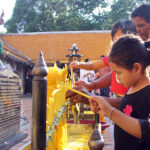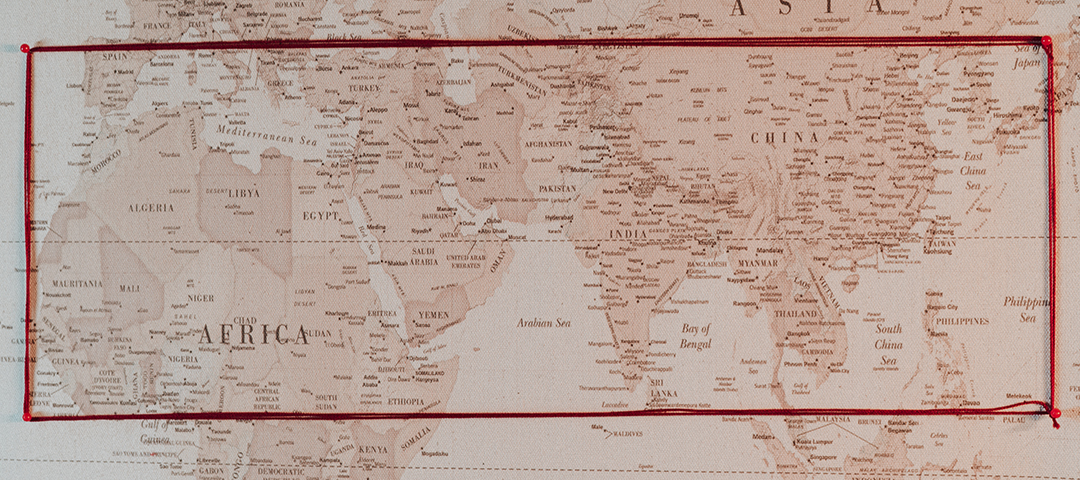
Sharing the Gospel with Buddhists
May 14, 2024
Cultural Barriers: A Crisis of Complacency
May 28, 2024By Sean Richards, Director of Mobilization
When you think of church planters serving in the hardest-to-reach places, are you imagining Americans moving to those places, learning the local language, building relationships and planting a church? Unfortunately, in most cases that’s not a real possibility. Let’s first consider the realities of those hardest-to-reach places and how those realities affect our strategy as Americans to reach the people living there.
The Hard Places
When we think “hardest to reach,” we shouldn’t think in terms of remoteness. I say this having served as a missionary in a location that was extremely remote. No; “hardest to reach” isn’t about remoteness. It’s about access. Generally speaking, the majority of the world’s unreached people groups reside in a geographic region located in or around a window between ten and forty degrees north latitude spanning from North Africa through Asia. Not all countries or areas in this region are included, while some just outside of the boundaries are. In all, missiologists surmise there are 68 countries that make up the revised 10/40 window region.
The people in this region predominantly consist of Muslims, Hindus, Buddhists, Unreligious, and Animists (tribal spirit belief systems). Another consideration is that many of the countries included do not look favorably on the USA and often have the most hostile governments toward Christianity. Of the 50 worst countries for Christian persecution, 45 reside in the 10/40 window.
These locations are often challenging for Americans to even exist without inherent suspicion from the community and government. Because of the scrutiny that would arise from simply living there, the idea of an American planting a church in such a context is unrealistic at best.
One might assume that the people in this region represent a relatively small proportion of the world’s population compared to people who already have access to the good news. However, the truth couldn’t be more contrary; the combined populations of these 68 countries represent two-thirds of the entire global population.
As Christ followers seeking to fulfill the Great Commission, we cannot ignore the hard places just because we can’t do it ourselves. No, we must take action but do so strategically. We have been blessed to be a blessing! The resources Christ followers have in America are too great to keep on the sidelines. We need to leverage the tools and resources we have been blessed with to do our part in fulfilling the Great Commission.
Working Behind the Scenes
As Americans we must prioritize faithfulness over receiving the credit in order to reach those in the 10/40 window region. We must adapt our strategies and focus our time and resources into equipping and sending missionaries from the places traditionally considered our mission field. There are countless potential missionaries that fill churches all throughout the global south and countries near the 10/40 window region.
We need to strategically partner with those churches and believers to equip and send them to serve in the places we cannot.
This requires a focused effort to mobilize those brothers and sisters abroad to go to the 10/40 window region, train and equip them with the skills and knowledge needed to serve in those contexts, and help financially support them to serve in the places where we cannot go.
This does NOT mean we should stop sending Americans abroad. We definitely must continue to send our own people to the places we are able to go. Additionally, we should send our own to train and equip our brothers and sisters from other countries to make disciples where we are unable— specifically, the 10/40 window region. Once we are able to do that, we can use our resources to partner with these frontier workers as they fulfill the Great Commission by going to the hardest to reach places.
To the Finish
I am fully convinced this is how we will be able to effectively reach the unreached in the 10/40 window region. The road is long and challenging. In all likelihood, we will be unable to see the work completed with our own eyes. However, it is not always our role to finish the race. Sometimes it’s our job to run our leg well so we can pass the baton to the person who will finish. Sometimes it’s our job to be the coach who prepares the runners.
Many of us will need to be sponsors whose role is to invest in the team so they can train, go, and run the race abroad. Regardless of our individual responsibilities to the team, we are all called to play our parts in a manner worthy of our Lord Jesus Christ.

